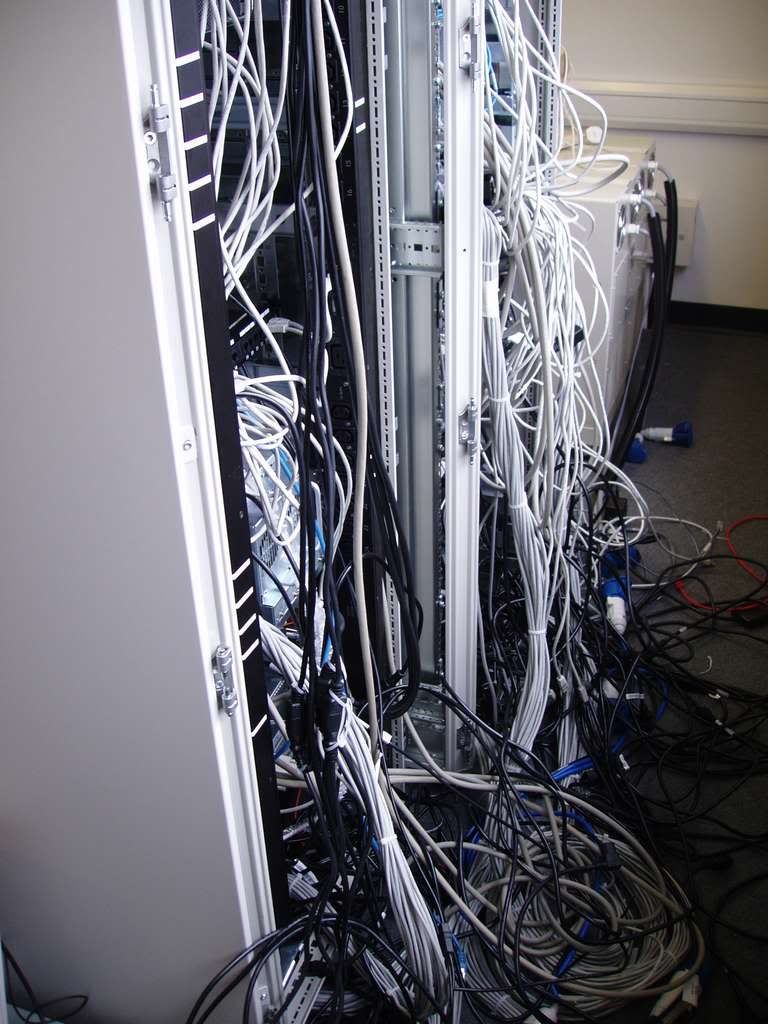I have been asked to provide two 32 amp blue industrial type sockets in a server room by the IT fella at work. The loading could be around 25amp on each.
We have a 100amp DB nearby which is operating at around 50-60amp. I don't want to put both sockets on the same phase as it might exceed the 100amp DB feed. I would prefer to feed them from different phases.
I'm not too familiar with the 17th edition, but seem to remember the 16th saying that sockets fed from different phases have to be a minimum distance apart. Anyone know how the 17th treat this?
A solution could be not to use sockets, but a fixed connection to two adjacent isolators. Does the 17th allow this? I would have to clear it with the IT man first though.
We have a 100amp DB nearby which is operating at around 50-60amp. I don't want to put both sockets on the same phase as it might exceed the 100amp DB feed. I would prefer to feed them from different phases.
I'm not too familiar with the 17th edition, but seem to remember the 16th saying that sockets fed from different phases have to be a minimum distance apart. Anyone know how the 17th treat this?
A solution could be not to use sockets, but a fixed connection to two adjacent isolators. Does the 17th allow this? I would have to clear it with the IT man first though.


